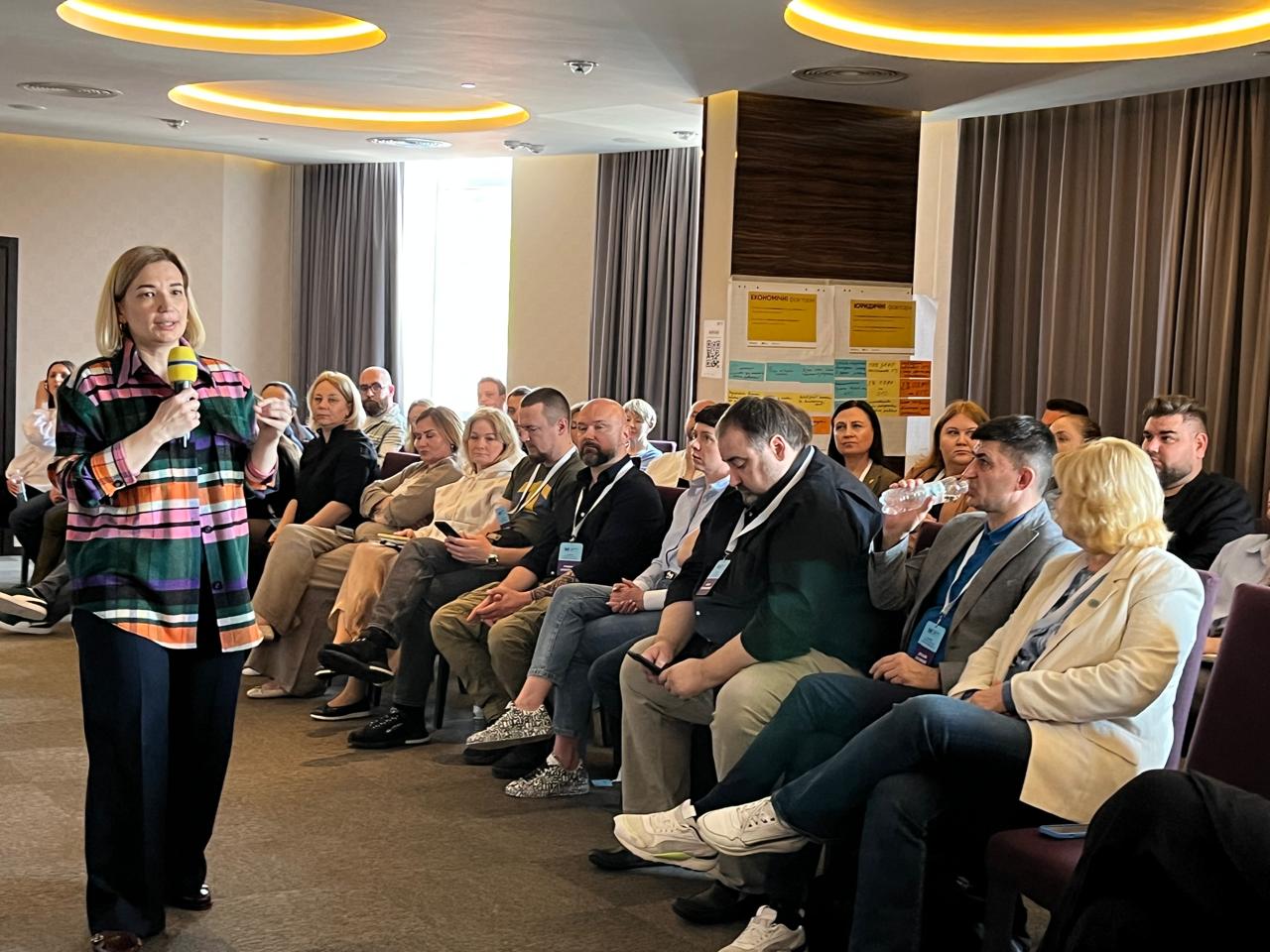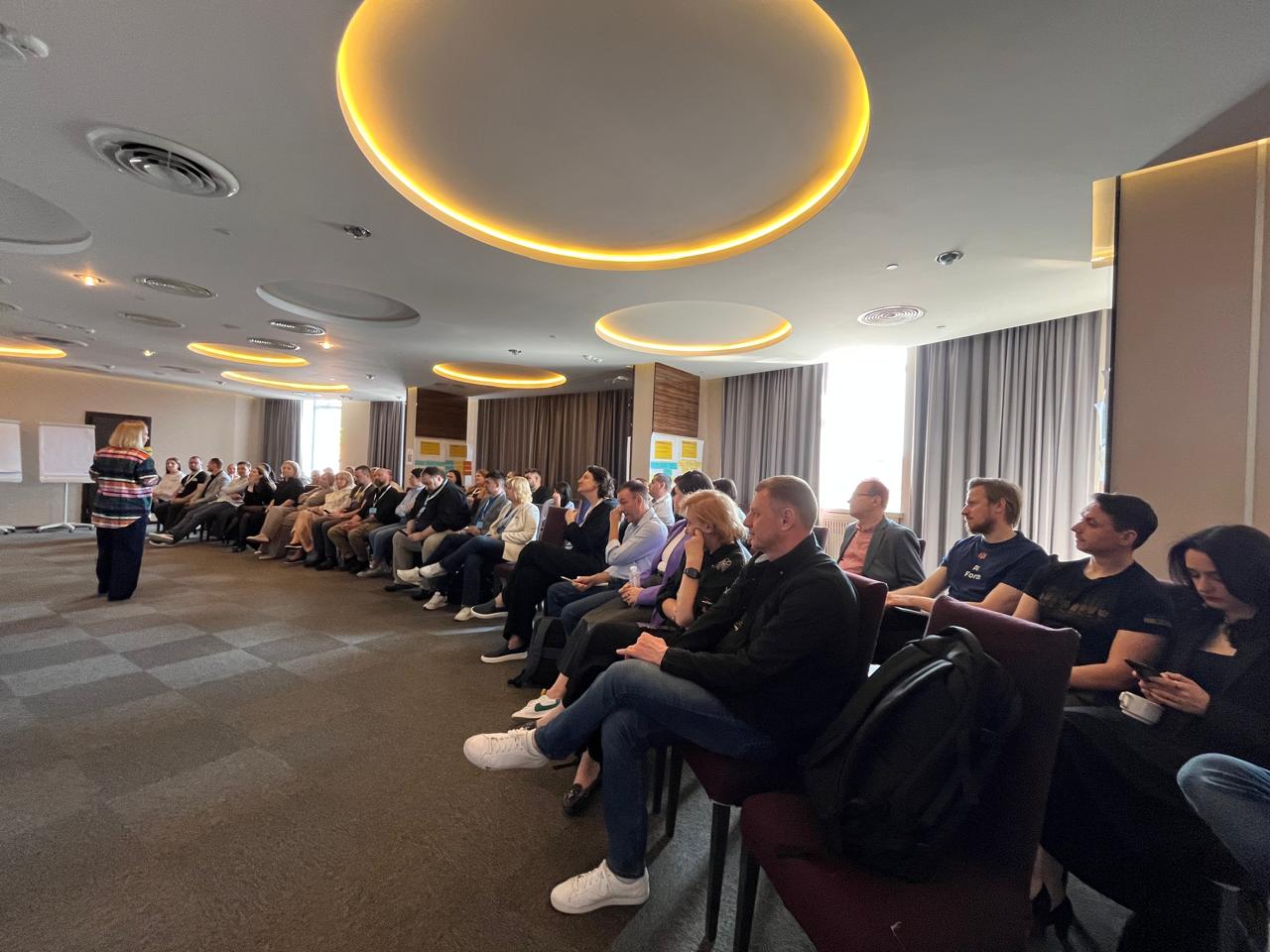
On April 29–30, the foresight event on the Looking into the Future of Ukrainian Democracy took place in Truskavets. It was organized by ISAR Ednannia with the support of the Norwegian-Swedish Askold and Dir Fund, operating under the Strong Civil Society of Ukraine – a Driver Towards Reforms and Democracy Project, implemented by ISAR Ednannia and funded by Norway and Sweden.
The foresight was a collaborative space for around 80 participants − representatives of civil society, government bodies, think tanks, and international partners. Together, they analyzed the current state of the country, discussed possible scenarios for democratic development during and after the war, and developed practical recommendations for civil society's action shortly.

Particular attention was paid to the issue of the first post-war elections. Olha Aivazovska, an expert on electoral processes and Chair of the Board of the Civil Network OPORA, who has been actively engaged in electoral reform in Ukraine and internationally since 2002, emphasized:
“The first post-war elections are a prerequisite for resetting the state. There must be a transition of power — a peaceful handover of power. And the only mechanism ever invented for this is elections. The price of a mistake in elections is a failed state. If you do not reach your goal, you lose your statehood.”
Key messages from Olga Aivazovska:
- Democracy in times of war requires not only external protection but also internal, systemic preparation for elections, countering disinformation, and preserving electoral institutions.
- Political polarization has not yet materialized, but the “distance” between citizens with different war experiences is tangible, and it may become a precondition for future crises.
- The first elections after the war will be a pivotal moment in the state's recovery. They must be conducted honestly, under a renewed legal framework, and with due consideration of security challenges.
- The Central Election Commission and other institutions must continue functioning even under difficult conditions, and their work must be supported, not stigmatized.
- Elections during active warfare are unacceptable, but preparing for post-war renewal is the responsibility not only of the state but also of civil society.
This foresight event is only the first step toward developing a shared vision for Ukraine’s democratic development during and after the war. All the scenarios and proposals elaborated will be taken into account in ISAR Ednannia’s ongoing work with national and local partners.
